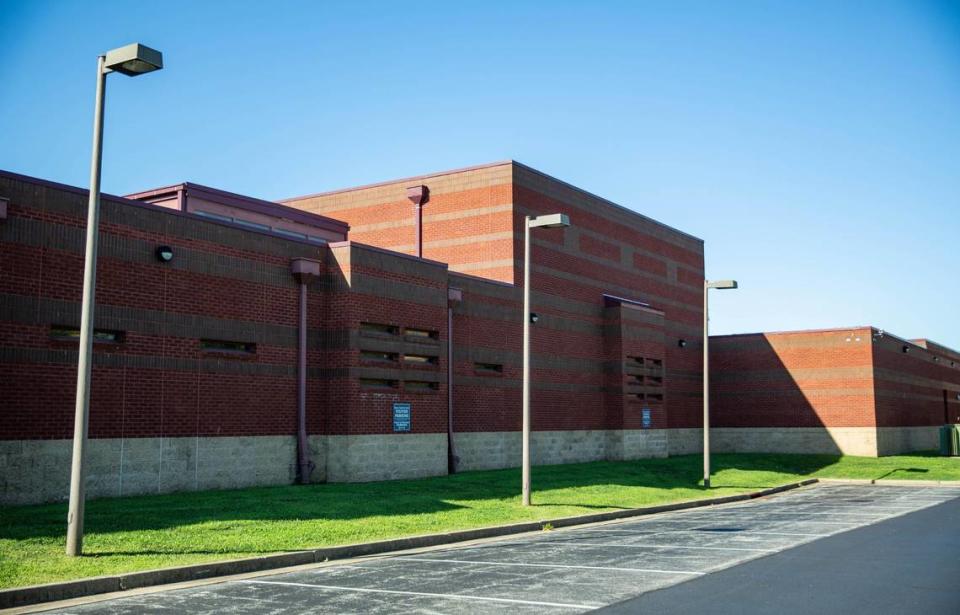Kentucky’s citizens should not stand for systemic abuse within juvenile justice system
- Oops!Something went wrong.Please try again later.
It’s hard to know what to be most outraged about in John Cheves’ recent stories about Kentucky’s juvenile justice system.
Is it the 116 documented cases of excessive force against young people by security guards? Is it a system that encourages workers to downplay their offenses so it will “look better” in reports? Is it the revolving door of scandals and firings, including five commissioners of the Department of Juvenile Justice in the past five years? Or is it a society that claims to cherish our children but still allows this kind of systematic dysfunction against them to continue?
A former youth worker was devastatingly honest with Cheves about the chronic under-staffing and lack of training at the Department of Juvenile Justice’s two dozen residential facilities around the state.
“There are so many flaws,” Jezreel Bell told Cheves. “The kids aren’t getting anything out of it. All we are doing is quite literally keeping them in a cell and praying for the best, watching the clock and hoping nothing happens until your shift ends and you get to get out of the building.”
Cheves also found records that showed that guards had “inappropriate sexual conduct with youths; used racial slurs and threats of violence; and failed to provide appropriate supervision, which sometimes led to illegal drugs being smuggled into facilities, youth-on-youth sexual assault and destructive riots requiring police intervention.”
Many times, the guards were given a second chance to return to their jobs.
These issues can be helped by big fixes and little ones. Rebecca Ballard DiLoreto, executive director of the Institute for Compassion in Justice, said that transparency could be improved by making the reports on physical force and use of isolation more easily available online and by requesting that the Department of Public Advocacy enter facilities on more regular basis to check on children inside them. She also thinks the department should provide monthly reports to judges, attorneys, and parents of children in the system.
The department also needs to quickly and fully terminate employees who mistreat youth at these centers, even if they try to use the merit system protection rules.
It’s not like we didn’t know there were problems. The entire department was created in 1996 as part of a settlement with the U.S. Justice Department because Kentucky’s existing system was found to violate youth’s civil rights. The new system was an improvement, but it’s still riddled with leadership and other problems outlined in these stories. Last year, the Beshear administration tried to fire Juvenile Justice Commissioner LaShana Harris for poor performance, but allowed her to resign instead. It’s time for everyone to do better.
There is a bigger picture here, beyond hiring protections and reports. These children are often troubled youth, many of them with histories of abuse, who could turn into troubled adults that could further burden taxpayer dollars as they wend their way through the criminal justice system. Instead, we could find better ways to rehabilitate them so they can break the cycle as soon as possible. Reform does not include putting children in holding pens, in danger of being preyed upon by those hired to protect them.
On Thursday, Gov. Andy Beshear pledged to do better. It’s a hollow pledge, given that although the administration honored his open records requests, no one from the Department of Juvenile Justice would speak to or meet with Cheves, or allow him to visit a residential center. We hope the Beshear administration will do better in fixing the problems than it has been about addressing them with a reporter.
Sen. Whitney Westerfield, chair of the Senate Judiciary Committee, said he would bring juvenile justice officials before the committee to testify. “Some people should be fired, and it seems like some should also be criminally prosecuted,” he said on Twitter on Thursday.
Westerfield’s attitude seems like the right one. Adults in Kentucky, particularly those in elected office, spend a lot of time speaking about the sanctity of life and care for our most innocent and vulnerable citizens, but less energy goes into solving the admittedly complicated problems in juvenile justice. We understand more about how trauma, neglect and abuse from childhood affect people for the rest of their lives. That trauma should not come at the hands of the state that is supposed to help our youth.


